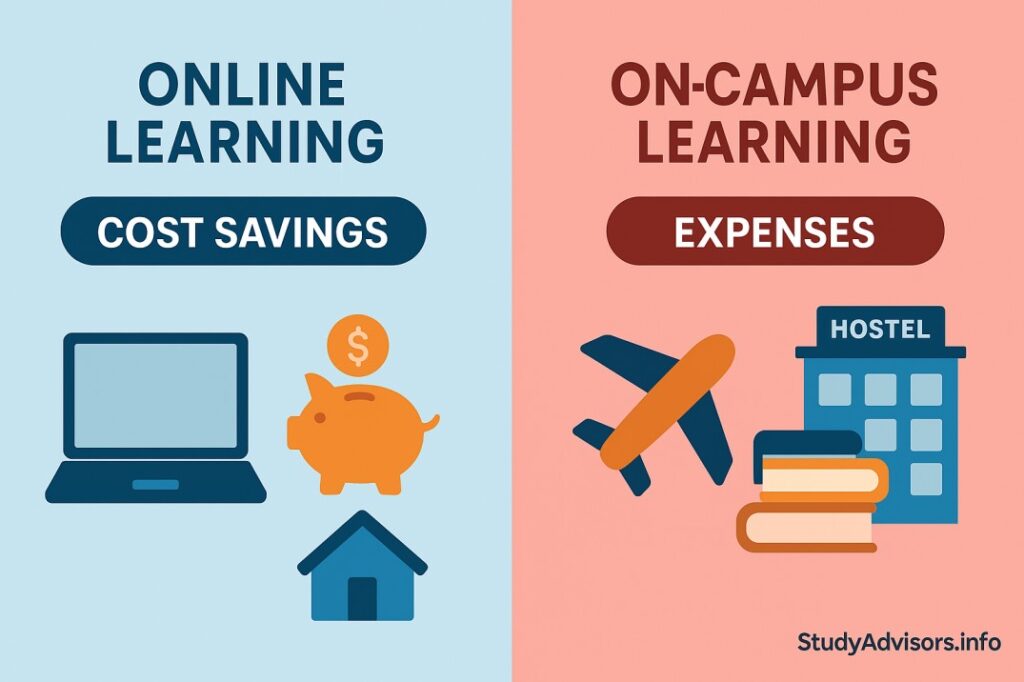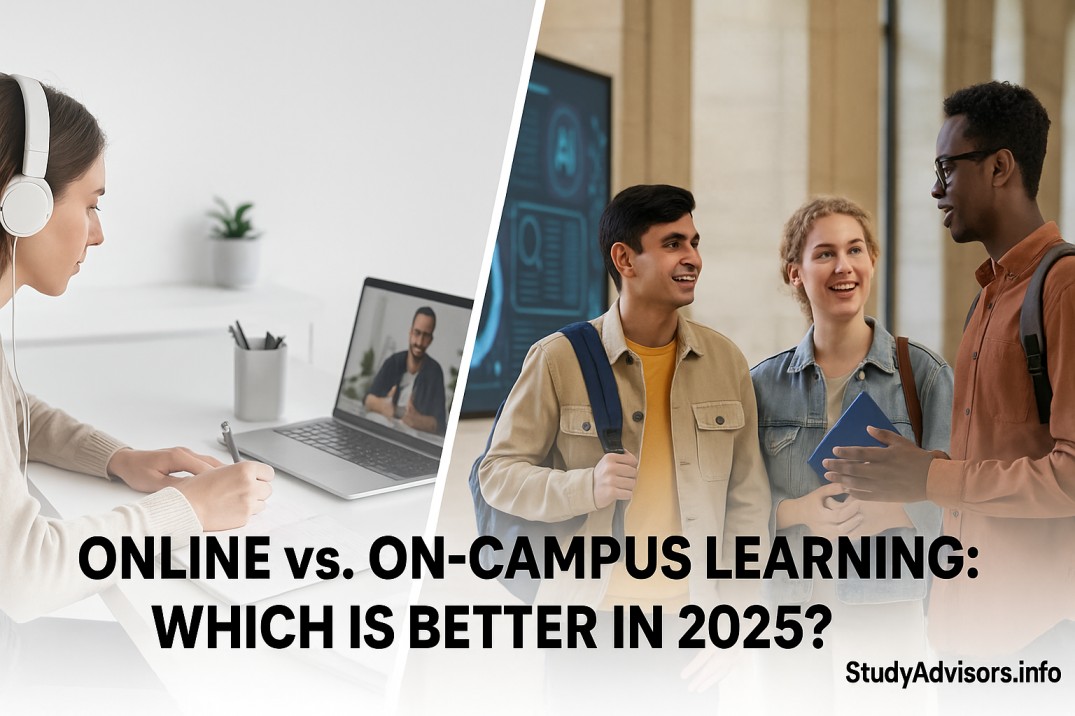If you’re a student in 2025, you’ve probably had this thought at least once: Should I study online or should I go to campus? Honestly, it’s not an easy call anymore. Both are legit options. Both have their strengths. And both can frustrate you depending on what you expect.
Let’s just talk about it plainly—no fancy buzzwords, no perfect corporate tone.
How Things Changed
Back in the 2010s, online learning was kind of a side thing. People thought it was mainly for working adults or distance learners. Then 2020 hit, the pandemic closed campuses, and suddenly everyone was logging into Zoom.
That shift didn’t just go away when life opened up again. Universities invested in platforms, students got used to studying in pajamas, and parents realized maybe not everything has to cost a fortune. Fast forward to today, 2025, and online education isn’t just “Plan B.” It’s mainstream.
But guess what? On-campus education didn’t die. Campuses got smarter too—focusing more on experiences, labs, networking, and things you can’t easily replicate online.
Why Online Learning Feels Attractive
- Freedom. This one’s obvious. Online courses don’t care if you’re a night owl, a working parent, or living two time zones away.
- Money saver. Sure, some online programs are pricey, but you’re not paying rent in a student hostel or burning fuel in daily commutes. That adds up.
- Worldwide reach. Sitting in Lahore or Dubai, you can still enroll in a U.S. or European program. Ten years ago, that sounded impossible.
- Tech support. Platforms aren’t boring anymore. Interactive quizzes, AI study assistants, recorded lectures—you’re not stuck with just PDFs.
- Go at your pace. Some courses let you finish modules in a week or drag them out over months. That’s a luxury campus rarely offers.
The Weak Spots of Online Learning
But let’s be real:
- It can feel lonely. No classmates to bump into in the hallway, no group study nights.
- You need discipline. If you’re someone who already struggles with deadlines, online classes may not forgive you.

- Networking suffers. Clicking “Connect” on LinkedIn isn’t quite the same as meeting a professor after class.
- Certain employers still tilt toward traditional degrees, especially in conservative industries.
What Campus Still Delivers
Walk onto a university campus and you’ll feel the difference immediately. The energy, the mix of cultures, the random conversations in the cafeteria—it’s alive in a way online can’t fully match.
- Community. Clubs, sports, debates, coffee with friends—campus creates memories as much as it creates graduates.
- Networking. Professors, guest speakers, alumni—meeting them face-to-face often leads to opportunities you never planned for.
- Practical experience. Medicine, engineering, theatre… these aren’t easy to teach over Zoom. Labs and studios are still crucial.
- Routine. Some students need fixed schedules to keep them focused. Campuses provide that structure.
- Cultural growth. If you study abroad, you don’t just get a degree. You get exposure to a whole new culture. That’s priceless.
Where Campus Struggles
- It’s expensive—tuition plus living expenses drain families fast.
- Schedules are rigid—bad news for students juggling work or responsibilities.
- Options are limited—if your dream course isn’t offered at your university, tough luck.
- Travel and relocation can be exhausting, especially for international students.
Hybrid: The In-Between
A lot of universities in 2025 are taking the middle road. They’ll stream the lectures online but keep labs, workshops, and discussions on campus. Students like it because it blends the best parts—flexibility plus hands-on.
Honestly, this hybrid setup might quietly become the default.
So, Which One’s Better?
Here’s the thing: there’s no universal winner.
- If you’re working full-time, have family responsibilities, or live far from good universities, online is your savior.
- If you want the social life, labs, and networking, campus is unbeatable.
- If you want balance, hybrid is probably the future.
The “better” choice is whatever fits your life stage right now.
Looking Ahead
Don’t be surprised if, by 2030, students are switching between modes constantly. Online for theory, campus for labs, maybe even VR headsets for virtual practice. Education is evolving fast.

FAQs
1. Are online degrees fully respected now? Mostly yes—especially from accredited universities. Employers care about skills more than format.
2. Which one is cheaper overall? Online, in most cases. But elite programs—whether online or offline—will always cost more.
3. Do online students lose out on networking? A little. Online platforms try, but nothing beats in-person connections.
4. Can labs be done online? Virtual reality helps, but medicine, engineering, and arts still need physical practice.
5. What’s best for international students? Online saves money and visa stress. Campus gives culture, language exposure, and local job networks.
6. Will hybrid dominate? It already is. Expect it to grow stronger.
Final Word
So, is online better than campus? Not really. Is campus better than online? Not always.
The truth is, education in 2025 isn’t a one-size-fits-all deal. The best option is the one that works for your goals, your budget, and your lifestyle.
That’s not the neat answer you might want, but it’s the honest one.







